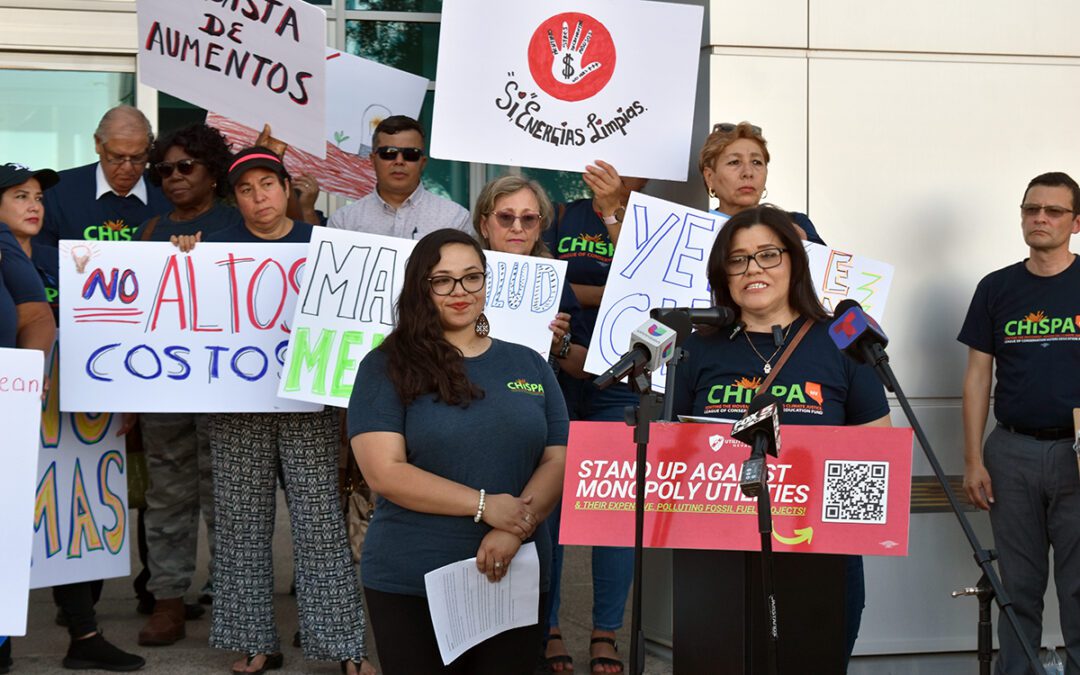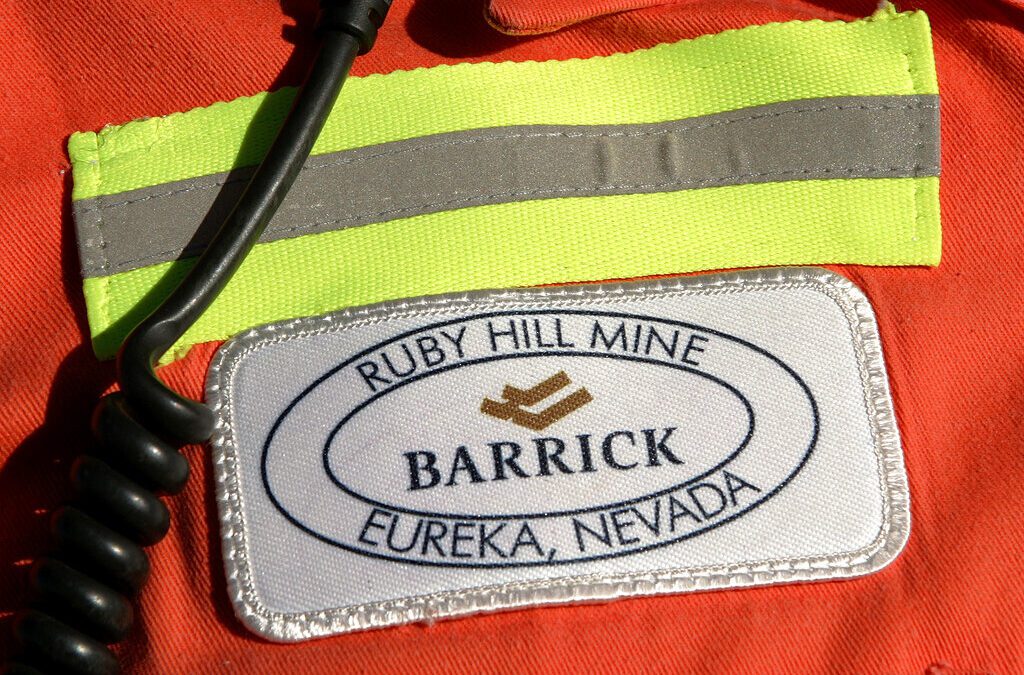
LAS VEGAS, NV - AUGUST 24: A Sunrun worker carries a solar panel for installation on the roof of William and Marcia Lee' home on August 24, 2023, in Las Vegas. (Photo by David Becker for the Washington Post)
The six-municipality coalition plans to apply for a federal grant funded by the Inflation Reduction Act, which it hopes to use to increase the adoption of renewable energy sources and promote transportation electrification.
A coalition of cities in Southern Nevada has joined forces to tackle climate change and plans to secure federal assistance for their efforts.
Clark County, Las Vegas, North Las Vegas, Henderson, Boulder City, and Mesquite are partnering together with the Southern Nevada Water Authority and Regional Transportation Commission to approach climate planning as a unified region.
Marci Henson, director of the Clark County Department of Environment and Sustainability emphasized the effectiveness of the joint approach saying, “There’s no reason to sort of recreate the wheel where we’re all off kind of doing a little bit of our own thing.”
“You know, air pollution does not respect jurisdictional boundaries, so if we all join forces and work towards the same set of actions in each of our jurisdictions in our own way, then we can really make a big impact across the region,” she continued.
Clark County is taking the lead on the six-municipality coalition’s efforts, as outlined in the memorandum of agreement documenting the collaboration. The memorandum also reveals plans to apply for a competitive grant from the Environmental Protection Agency’s Climate Pollution Reduction Grants Program in which the county is listed as the lead applicant.
The competitive grants range from $2 million to $500 million and are funded by President Biden’s Inflation Reduction Act, a 2022 law that’s investing hundreds of billions of dollars in clean energy initiatives to address climate change. The regional climate collaborative is applying for “up to $500 million,” according to the collective’s memorandum of agreement.
The coalition already received a $1 million planning grant from the EPA earlier this year and submitted its climate action plan from that grant to the agency this month, according to Henson.
The larger grant would allow the collaborative to begin to implement its plan, which is focused on reducing fossil fuel emissions.
After identifying building energy usage and transportation as the primary contributors to fossil fuel emissions in Southern Nevada, the coalition is prioritizing a strategy to increase energy efficiency in all the buildings across its jurisdictions.
“So long as the grid still does have dirty sources of fuel that delivers to Southern Nevada, the more we conserve energy, the more we conserve, the less emissions we’ll have,” Henson explained.
In addition to boosting energy efficiency, the coalition plans to use any grant funding it receives to increase the adoption of renewable energy sources, possibly by promoting state and national policies to convert to renewable energy and possibly investing in more solar panel and microgrid implementation locally. Henson said the coalition also plans to promote transportation electrification.
‘Knowledge is a key driver of emissions reductions’
Ben Leffel, a UNLV professor of public policy and leadership with a focus on environmental sustainability governance stressed the importance of sharing information in emission reductions.
“For cities, knowledge access is key for emissions reductions. Some of my research has shown that sharing knowledge in a networked sense works,” Leffel said.
Henson echoed the sentiment, pointing out the benefits of sharing information and collaborating across municipal governments and organizations to expedite sustainability efforts.
“The thinking was if we can sort of provide some data and some information, prioritize some actions and work collaboratively on implementing all these actions,” Henson said, “then it’s just going to help us implement the plan faster and make impacts on reduction of emissions just that much more quickly.”
This way, actions taken by the coalition—like possible new energy efficiency standards on buildings or increased investment in clean energy resources or public transportation—could affect the entire region instead of just one of its cities.
Leffel suggested the coalition expand its partnerships to include environmental consultants, businesses, nonprofit organizations, community leaders from marginalized communities and local tribal communities for a comprehensive approach to a successful end.
He further recommended that the collaborative could benefit from working with global organizations of cities committed to sharing climate policy knowledge and networks, like ICLEI, a global network of over 2,500 local and regional governments committed to sustainable development, which counts none of the cities in Southern Nevada as members.
Leffel said his research also shows that financial incentives have worked in helping corporations reduce their carbon footprint. But the professor suggested that the collaborative take a “bottom-up” approach to investing potential federal money.
“If cities are to decarbonize, they must mobilize rebates, loans, tax credits and other financial incentives to businesses and communities,” Leffel said. “But you have to mobilize those funds from the bottom up, from the most marginalized communities up to the big businesses that are reducing emissions.”
Leffel specifically cited the Inflation Reduction Act as providing an “immense opportunity” to help cities decarbonize. The federal money from the law could reduce the city’s cost of decarbonization, which Leffel said would otherwise be “a very costly endeavor.”
‘That’s bottom-up power’
The regional climate collaborative in Southern Nevada is an example of local governments taking initiative in sustainability.
“It’s so funny, because so many leaders in industry and government and nonprofits think, ‘Oh, well without federal support, sub-national action cannot succeed.’ And that’s not true,” Leffel said.
“Cities and states can implement climate action in half a year that would take the federal government years. That’s bottom-up power,” Leffel said. “Of course, federal support is good, it is ideal. But climate action is ultimately implemented on the ground here.”
The collaborative will submit its application for the grant by April 1, and according to the agency’s website, the EPA estimates that grants will be awarded in October.

Condena Chispa Nevada el retiro de apoyo en su pago de electricidad a familias de bajos ingresos
Chispa Nevada condena que la administración Trump retire ilegalmente el financiamiento del programa de Nevada para reducir las facturas de...

Biden admin moves to shield Nevada public lands from mining with support of tribes, local leaders
In one of President Biden’s last moves in office, his administration has moved to protect 269,000 acres of public land in Nevada from a proposed...

Many fear help for Nevada water conservation will dry up under Trump
Despite billions from the Inflation Reduction Act going to benefit Nevada, President-elect Donald Trump and conservative fiscal hawks may pursue a...

Grant from Biden infrastructure law to help install 185 EV charges around Las Vegas valley
A $3.2 million grant from the US Department of Transportation will help fund and install electric vehicle charging stations in primarily...

Almost 500 people have died from extreme heat in Las Vegas in 2024, officials say
Factors relating to extreme heat accounted for 491 deaths and more than 3,500 emergency room visits, according to Clark County officials, as Las...

Nevada gold mining venture selected for $95M solar project
After being awarded a federal grant to help decarbonize the mining industry, Nevada Gold Mines hopes to build two on-site solar panel and battery...





